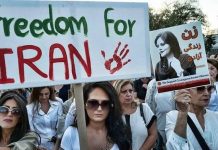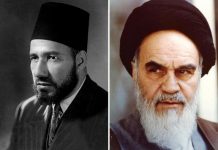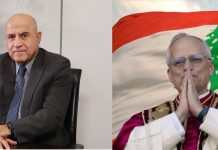حنين غدار/معهد واشنطن: ماذا تعني خسارة حزب الله النيابية للبنان
What Hezbollah’s Parliamentary Loss Means for Lebanon
Hanin Ghaddar/The Washington Institute/May 17, 2022
The voting results provide even more hope for change than meets the eye, though the winners will need international help to prevent Hezbollah from obstructing the next steps.
On May 15, Hezbollah suffered a major defeat in Lebanon’s parliamentary election, losing not only its majority control of the legislature but also all of its non-Shia-Muslim allies. Despite low turnout, threats of violence, financial difficulties, and growing national despair, the people voted for change, choosing reforms over Hezbollah and its ever-growing military arsenal.
From a distance, one might conclude that the major political parties managed to maintain substantial parliamentary blocs. Yet a closer look at the details reveals that a number of significant changes will mark Lebanon’s new political scene.
First, Hezbollah lost the Christian cover that has enabled it to manipulate various levers of power and flout the constitution, including the arms that make it the country’s most potent military force. Previously, the Hezbollah-allied Free Patriotic Movement, headed by Gebran Bassil, enjoyed the majority of Christian representation in parliament, but Samir Geagea’s “Lebanese Forces” party will now claim that mantle, winning more than twenty seats compared to thirteen for the FPM. Bassil’s loss will also affect his ambitions to win this fall’s presidential election.
Second, Druze areas in the Chouf and Aley districts witnessed real breakthroughs by the opposition, with three seats going to independents—Mark Daou, Najat Aoun Saliba, and Halime Kaakour. Druze leader Walid Jumblatt maintained his representation as well. Even more notable were the losses by Wiam Wahab and Talal Arslan, two key allies of Hezbollah and Bashar al-Assad’s regime in Syria. In fact, Assad lost traditional allies all across Lebanon, such as Assaad Hardan, Elie Ferzli, and Faisal Karami.
Third, in Beirut’s western second district, Sunni voters defied former prime minister Saad Hariri’s calls to boycott the election, and many of their votes went to new independent candidates, including big wins for Ibrahim Mneimneh and Melhem Khalaf. Hezbollah had its eye on this district, where it worked hard to boost its own Sunni candidates and hoped that low overall turnout among this community would help compensate for its expected loss of Christian allies. Ultimately, the group aimed to cultivate a significant Sunni bloc via wins in Beirut, Tripoli, West Beqa, and Saida-Jezzine. Yet its plan to penetrate the Sunni street failed, and the majority of its Sunni candidates lost. As for Hariri, his exit from the country’s political scene is now finalized.
Fourth, the south brought the biggest surprise. For the first time ever, Hezbollah’s joint list with allied party Amal lost seats to two outside candidates, Elias Jradeh and Firas Hamdan. This setback came despite the many violations committed by Hezbollah-Amal representatives inside and outside the voting stations.
So what does all this mean? Hezbollah lost nearly everywhere in Lebanon, and although it managed to force the preservation of its twenty-seven-member Shia bloc in parliament, its support appears to be slipping even among this core constituency. Compared to the 2018 election, all Shia districts witnessed lower turnout, indicating that a considerable silent majority is dissatisfied with the group politically.
Moreover, the new independent members of parliament generally do not abide by sectarian identities or political affiliations. This is a big break from the opposition’s former “March 14” coalition, which was larger but definitely more sectarian. In addition to new civil society representatives, a combination of winning factions—Samy Gemayel’s Kataeb Party, traditional independent candidates, the new anti-Hezbollah Sunni bloc, and the Lebanese Forces with their largest bloc yet—could have a real chance to take Lebanon in a new direction. The formation of the next government, the outcome of the presidential election, and, most imminently, the selection of the next speaker of parliament will go a long way toward determining the horizons of this potential change.
Current speaker Nabih Berri, the head of Amal, can no longer guarantee holding that post for an eighth time—at least not unless he is willing to compromise with Jumblatt and Geagea. The challenge remains agreeing on another Shia candidate (as the constitution mandates for this post) when all of the Shia members are members of Hezbollah or Amal.
After their election victories were announced, Geagea, Gemayel, and Tripoli Sunni politician Ashraf Rifi publicly promised their constituencies that they would not repeat the previous mistake of allowing Berri to remain speaker. If all opposition forces decide to reject Berri and take the daring step of agreeing on a single nominee, the parliament might finally see a new speaker—a development that would greatly affect Amal’s internal politics, popular support, and relationship with Hezbollah.
The new majority, although fragmented, shares many of the same views regarding reforms and Hezbollah’s arms. If they manage to coordinate, they could even spark a new discussion on national defense strategy, focusing on Hezbollah’s arsenal while also addressing the role of the Lebanese Armed Forces, the appointment of key security and financial officials, and, most important, what kind of leader they want to emerge from the presidential election.
The main obstacle to such momentum will be a humiliated and anxious Hezbollah. Having lost this round, the group will no doubt use all of its tools to influence the next steps, including threats of violence. Yet its old formula of bullets vs. ballots—which worked after the 2005 and 2009 elections—might not be as successful this time around, simply because the group’s political allies can no longer provide cover.
Hezbollah could also play another game at which it has long excelled: delaying key processes by blocking decisions and creating vacuums in government institutions. It has used such deadlocks to affect government formation and presidential elections many times before. This time, it might try to link those two events in order to force a compromise that guarantees its preferred presidential candidate a win. Unfortunately, this scenario could obstruct reforms and political change, ensuring that the promising electoral outcome is not properly reflected in state institutions. More international pressure is therefore needed immediately to prevent an institutional vacuum and discourage any compromises that threaten to cripple the movement toward change.
*Hanin Ghaddar is the Friedmann Fellow at The Washington Institute and author of its recent study Hezbollahland: Mapping Dahiya and Lebanon’s Shia Community.





















